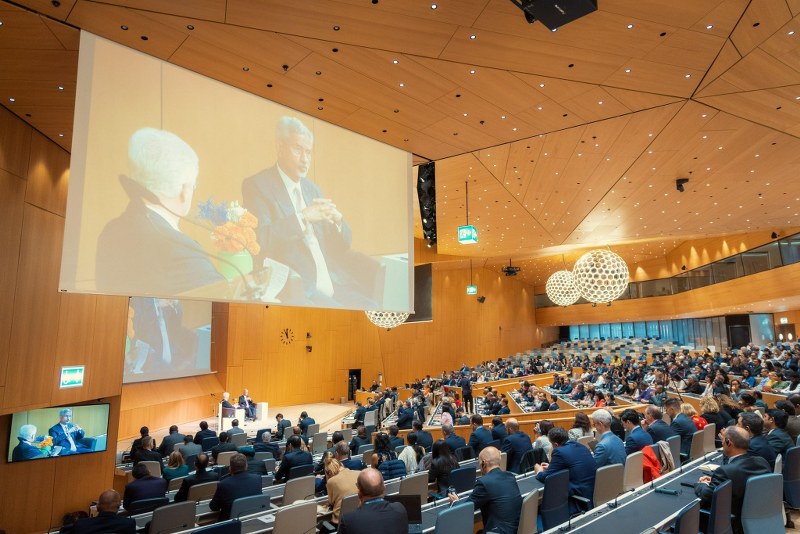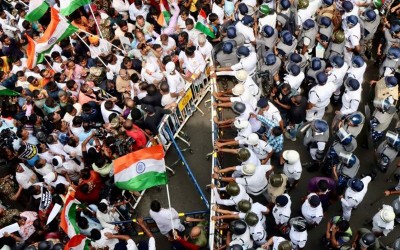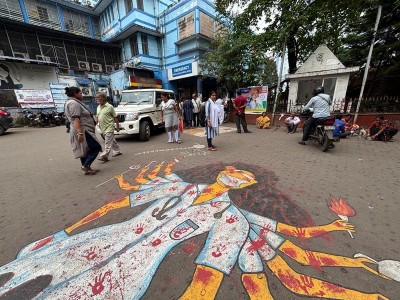
75% disengagement achieved: EAM S Jaishankar on 'progress' in resolving boundary issue with China
Geneva: External Affairs Minister S. Jaishankar stated on Thursday that there has been "some progress" in resolving the boundary issue with China, underscoring that about 75 percent of the "disengagement" challenges have been addressed, media reports said.
Speaking at an interactive session at the Global Centre for Security Policy, an independent think tank in Geneva, Switzerland, where he is attending bilateral meetings, Jaishankar added that a more significant concern remains the growing militarization along the frontier, NDTV reported.
Jaishankar said the Galwan Valley clashes of June 2020 affected the "entirety" of India-China ties, asserting that "One cannot have violence at the border and then say the rest of the relationship is insulated from it".
"Negotiations are going on. We made some progress. I would say roughly you can say about 75 percent of the disengagement problems are sorted out," he said, adding "We still have some things to do."
Relations between India and China have reached a historic low, with both countries' militaries maintaining their positions since the Ladakh standoff began in May 2020.
The disengagement process commenced in February 2021 and has continued since then.
According to Jaishankar, around 75% of the disengagement issues with China have been resolved.
During his visit to Switzerland, he is set to meet with Chinese Foreign Minister Wang Yi.
Diplomatic and military talks between the two nations are ongoing.
"We hope that if there is a solution to the disengagement and there is a return to peace and tranquility, then we can look at other possibilities," Mr Jaishankar said.
Partial disengagement occurred from Galwan, Hot Springs, and Gogra in July 2020, while complete disengagement was achieved from the north and south banks of Pangong Lake in February 2021.
Despite this progress, Chinese forces remain entrenched in the Depsang Plains in northeastern Ladakh, showing no signs of withdrawal.
The Line of Actual Control (LAC), which spans approximately 3,500 km and includes China-occupied Tibet, remains a significant point of contention. India has stated that normalization of relations with China is contingent upon establishing peace in the border regions.
"The basis obviously for a good relationship, I would say even for a normal relationship, was that there would be peace and tranquility in the border. After things started to take a better turn in 1988, we had a series of agreements which stabilised the border," Jaishankar said.
Regarding China’s unilateral alterations to the status quo along the LAC, Mr. Jaishankar said, "What happened in 2020 was in violation of multiple agreements for some reasons which are still entirely not clear to us; we can speculate on it."
"The Chinese actually moved a very large number of troops to the Line of Actual Control at the border and naturally in response, we moved our troops up. It was very difficult for us because we were in the middle of a Covid lockdown at that time," he said.
Describing the development as very dangerous and referring to the Glawan clashes, Jaishankar said, "Now we could see straight away that this was a very dangerous development because the presence of a large number of troops in these extreme heights and extreme cold in near proximity could lead to a mishap. And that's exactly what happened."
"We have now been negotiating close to four years and the first step of that is what we called disengagement which is their troops go back to their normal operating bases and our troops go back to their normal operating bases and where required we have an arrangement about patrolling because both of us patrol regularly in that border as I said it is not a legally delineated border," Jaishankar said.
Support Our Journalism
We cannot do without you.. your contribution supports unbiased journalism
IBNS is not driven by any ism- not wokeism, not racism, not skewed secularism, not hyper right-wing or left liberal ideals, nor by any hardline religious beliefs or hyper nationalism. We want to serve you good old objective news, as they are. We do not judge or preach. We let people decide for themselves. We only try to present factual and well-sourced news.







